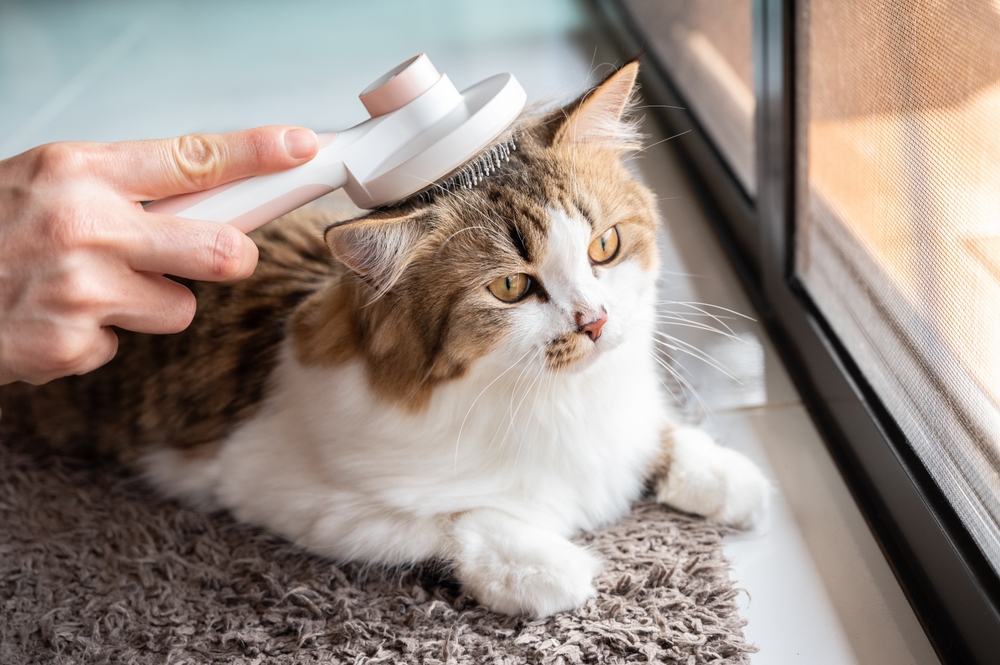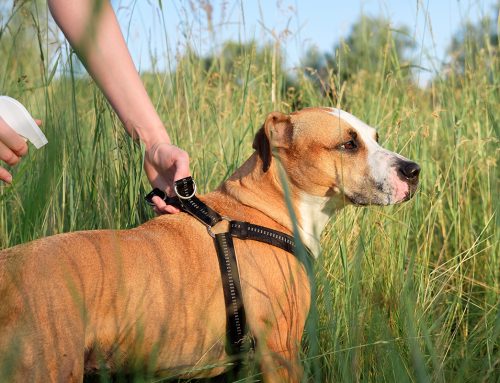Summer is ideal for outdoor adventures with your furry pal, but seasonal skin concerns can bring down the vibe and leave your pet feeling miserable. Heat, humidity, and the environment can contribute to various pet skin issues, causing itching, irritation, or infections. The Aloha Veterinary Hospital team shares how you can combat seasonal threats and keep your pet’s skin in top condition during summer.
Summer pet skin inspections
Regular skin checks can help you detect problems before they worsen. Briefly examine your pet’s coat and skin daily and schedule a visit with our veterinary team if you find something concerning. Look for the following:
- Redness or irritation — A red patch, bumps, or irritated areas could indicate an infection or allergy is brewing.
- Dry, flaky, or oily skin — Dryness, flaking, and oiliness can result from a poor diet, systemic medical issues, or skin conditions.
- Lumps or bumps — Lumps and bumps can be anything from a wart or benign cyst to a malignant tumor.
- Fleas and ticks — Fleas move quickly on pets, but you may see droppings, which look like reddish-brown specks, on your pet’s skin. Ticks look like tiny brown bumps, but if you look closely, you’ll see their legs.
Sunburn and pets
Like humans, pets can suffer from sunburn after too much UV exposure. Most haired pets have natural protection from the sun’s rays, but hairless areas (e.g., top of the nose) and completely hairless pets are at risk. Prevent sunburn by limiting your pet’s sun exposure, providing shade, protecting large areas with breathable, lightweight clothing, and applying pet-safe sunscreen. Avoid human products, which can be toxic to pets.
Hot spots and pets
Hot spots are painful, moist, infected skin lesions that spread quickly after they appear. Bug bites, self-trauma from itching, and moisture trapped against the skin are possible causes. Preventing hot spot development includes allowing your pet to dry completely after swimming or bathing, grooming pets regularly to remove trapped hair and tangles, and monitoring pets for licking and scratching.
Fleas and pets
Fleas are active year-round in mild climates like ours, but activity can increase during summer. Once fleas infest your pet, getting rid of them is a lengthy process. Plus, they can transmit diseases or cause severe allergic reactions. Prevent flea infestations by administering monthly topical or oral preventives year-round. If fleas are already established in your home, daily vacuuming and frequently washing your pet’s bedding can help eliminate eggs from cracks and crevices. You may need professional help to eliminate fleas entirely.
Pet grooming tips

Regular grooming is essential for maintaining your pet’s skin, ear, and nail health. Here are some tips for keeping your furry pal in top condition:
- Choose the right shampoo — Aloe or oatmeal-based shampoos suit most pets, but you may need a medicated shampoo to battle certain skin conditions. Do not use human hair products on pets, and ask our team for shampoo recommendations.
- Don’t over-bathe — A medicated shampoo can be therapeutic when your pet needs frequent baths for a skin condition, but such products can strip natural oils and make healthy skin dry. Monthly bathing is sufficient for most pets.
- Brush regularly — Brushing helps distribute natural oils, removes loose hair, and prevents matting. Daily brushing is ideal during summer when many breeds shed more.
- Don’t forget the ears — Use a gentle micellar ear wash every few weeks for maintenance and after bathing or swimming to keep your pet’s ears clean and dry and prevent infections. Dogs with floppy ears, narrow ears, or a history of infections may require more frequent cleaning. Ask our team for product recommendations or to demonstrate the ear-cleaning procedure.
- Trim nails monthly — Overgrown nails can alter your pet’s gait and lead to discomfort. If you’re uncomfortable trimming your pet’s nails at home, schedule a monthly visit with our team or a local groomer.
Our summer skin care regimen can help your pet enjoy a healthy, itch-free summer. Regular inspections, preventive measures, and prompt action to address skin concerns will keep your pet’s skin feeling great all season. Contact the Aloha Veterinary Hospital team if your pet develops a skin problem or to schedule their next routine exam and parasite control consultation.







Leave A Comment